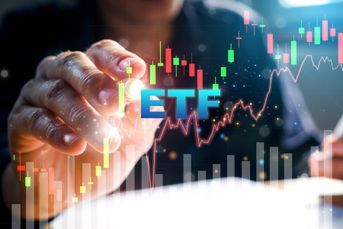Financial insecurity among Americans hits new high

With inflation leading their concerns, survey finds two-fifths of respondents are playing defense in their savings and investments.
While optimism about the US economy’s direction has seen an uptick, an unprecedented number of Americans are reporting a heightened sense of financial insecurity, according to a new study from Northwestern Mutual.
In its 2024 Planning and Progress Study, the insurance and financial giant found 54 percent of US adults anticipate a recession in 2024, a notable decrease from the 67 percent who expected that in 2023. This shift in sentiment is reflected across various age groups, signaling a broad-based increase in economic optimism.
Despite this more positive outlook on the economy, Northwestern Mutual’s research found a third of Americans (33 percent) do not feel financially secure, marking the highest recorded level of financial insecurity since its inception.
Financial insecurity is largely driven by concerns over inflation, with more than half of the participants expecting inflation rates to climb further in the coming year. Alarmingly, only 9 percent of Americans believe their household income is sufficiently outpacing inflation, pointing to the impact of rising prices on financial well-being.
“Inflation is considered the greatest obstacle to financial security, coming in well ahead of factors such as lack of savings and debt,” noted Christian Mitchell, chief customer officer at Northwestern Mutual.
The study also highlights concerns beyond inflation, with government disfunction and the 2024 presidential election emerging as significant sources of anxiety that could impact Americans’ financial futures. Underscoring the complex web of factors that influence economic sentiment across the country, a third of respondents cited government disfunction (34 percent) and the presidential election (33 percent) as key worries.
Facing uncertain market and economic conditions, 42 percent of Americans are adopting a defensive stance in their investments and savings, prioritizing risk management over growth opportunities. This cautious approach is underpinned by strategies such as cost-cutting and savings accumulation.
The study also revealed a generational divide in strategies to adapt, with younger Americans more likely to explore side hustles to bolster their incomes.
Despite the general trend toward financial caution, the study notes a concerning decline in financial discipline among Americans, dropping from 65 percent in the immediate post-Covid period to 45 percent in 2024.
The decline in disciplined financial planning came with high levels of spending on nonessentials, with three-fifths of respondents (59 percent) indicating plans to maintain or increase their discretionary spending.
The report also points to a stark contrast in investment strategies among different demographics, with younger individuals and high-net-worth respondents showing a greater inclination toward higher-risk investment avenues like equities and alternative assets.
Among respondents playing offense in their portfolios, 42 percent said they’re focusing on ramping up their stock allocations, with 52 percent of Gen Z and 50 percent of HNW investors driving that trend.
REITs ready to rise despite commercial real estate fears, says American Century portfolio manager
Learn more about reprints and licensing for this article.








